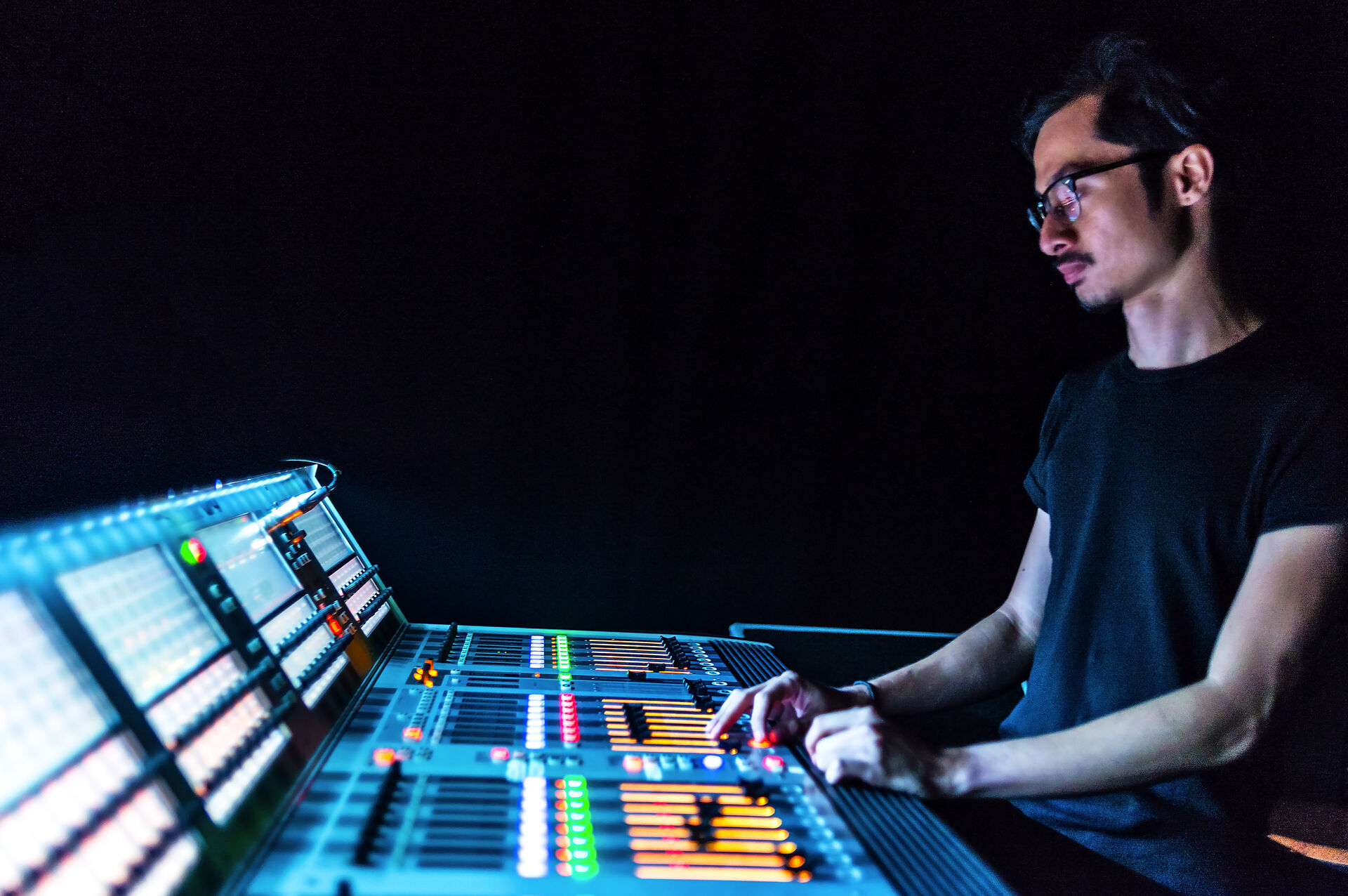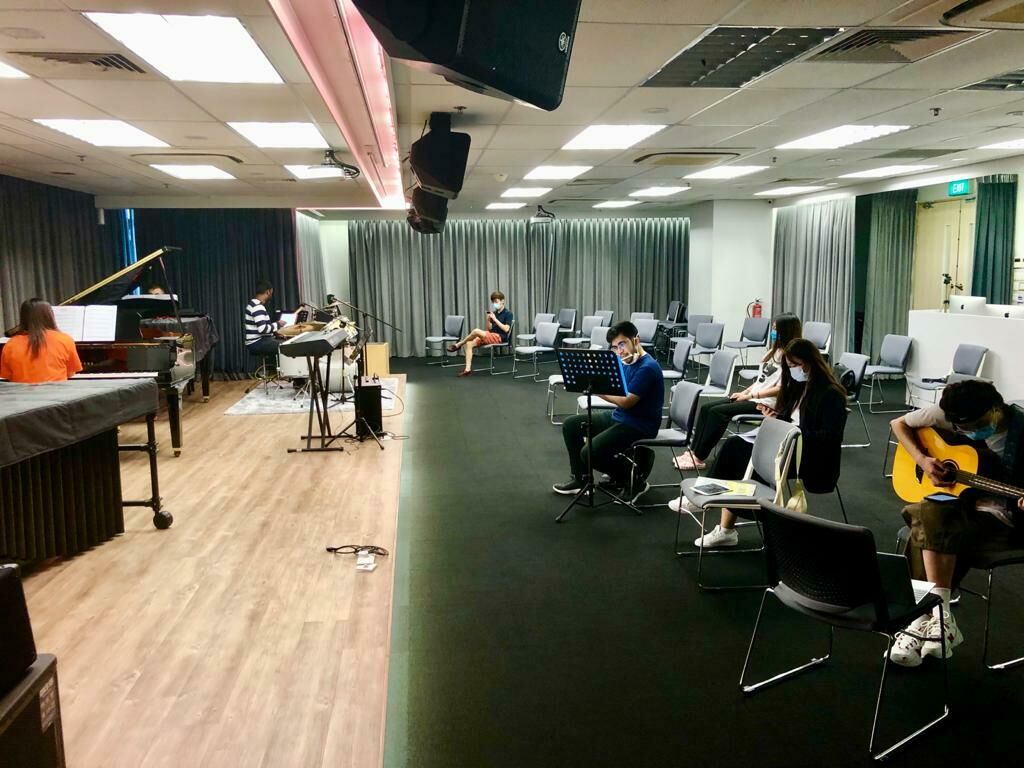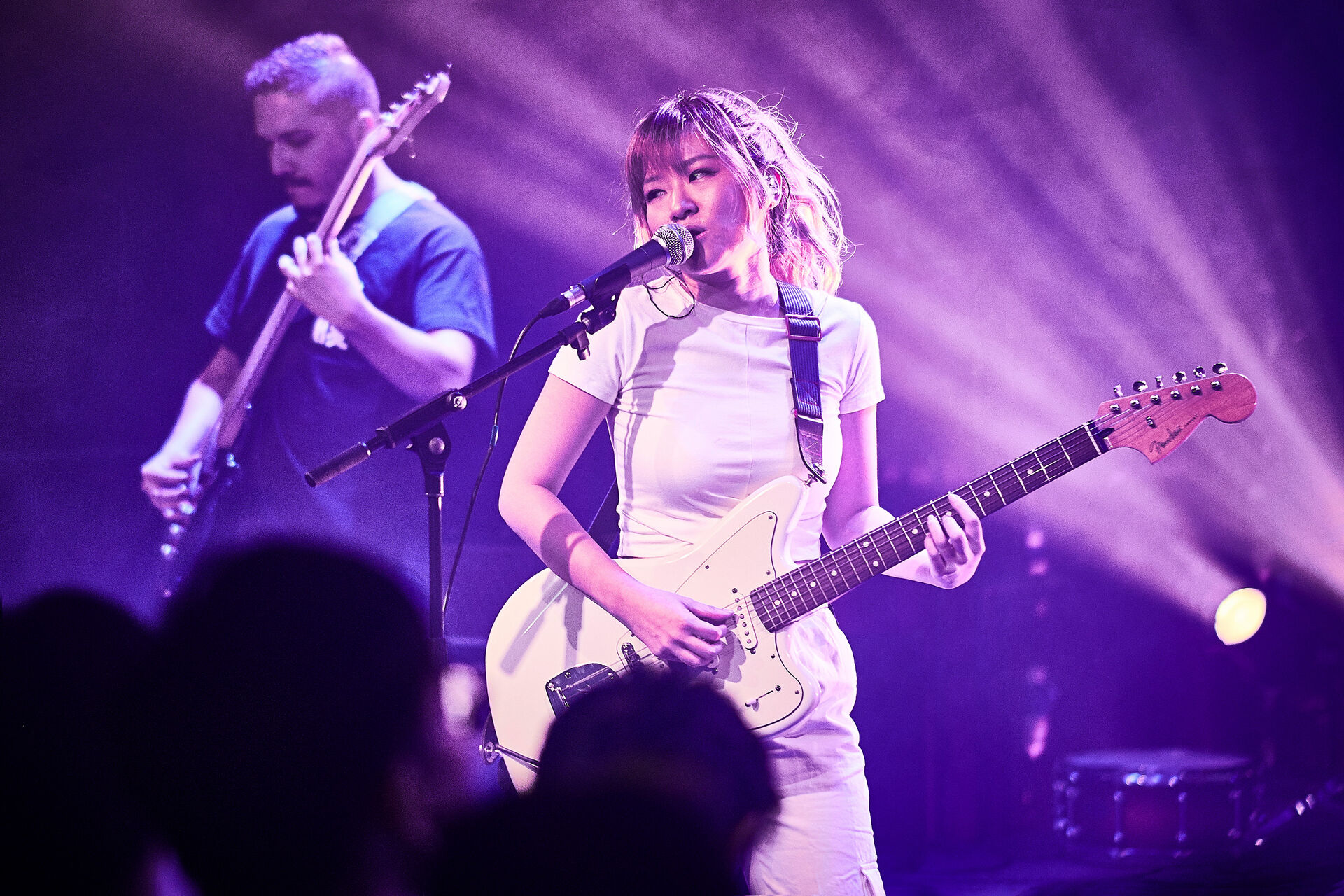As a budding student, one of the most challenging decisions to be made is choosing the right course to pursue for our higher education.
A bunch of different questions and concerns come to mind: How challenging will the course be? What are my career prospects after graduating from the course? Which is the best school to apply to?
When answering these questions, a common piece of advice given is to base our decisions on our strengths and interests. Yet, for those who identify music as their one true passion, seeking clarity on these education-related questions becomes slightly more challenging because music is not something many have chosen to study in Singapore.
Then, to the ultra-conservative faction of our population, pursuing music (or any arts-related field, for that matter) in one's tertiary studies doesn't get nearly as much glory as reading medicine, law, or engineering. It's something that people rarely discuss at open houses or career fairs, and perhaps the dearth of information surrounding our music education landscape has partially led to many choosing to avoid it altogether.
In this article, Hear65 casts a spotlight on the overlooked topic of pursuing a music degree or diploma in Singapore. We spoke with five schools offering music courses — LASALLE, Singapore Raffles Music College, Yong Siew Toh Conservatory of Music, Singapore Polytechnic, and The Songwriter Music College — as well as music school alumni and acclaimed homegrown artists Evan Low and David Loke, to discuss the value of studying music today.
Our conversations housed many salient points which were then summarised into the five segments below:
- Equipping the musician: pedagogies and lessons learned
- Self-learning vs formal education — what's the difference?
- Dismantling stereotypes of music graduates
- Music education in a time of COVID
- Advice for the prospective music student
Equipping the musician: pedagogies and lessons learned
Singapore's music education landscape is vast and consists of a number of well-established institutions that fall under both the public and private spheres.
The only autonomous university in Singapore that currently offers a degree in music is the National University of Singapore's Yong Siew Toh Conservatory of Music (YST). On the private route, colleges like LASALLE College of the Arts and Singapore Raffles Music College (SRMC) also have programmes that award a Bachelor of Music/Arts qualification.
For a diploma in music, Singapore Polytechnic's Diploma in Music and Audio Technology (SP DMAT) has traditionally been a popular route taken by students. However, many other reputable schools also offer the certification — including The Songwriter Music College (TSMC), SRMC, and LASALLE.
Regardless of which school one chooses to enrol in, there is a common emphasis across the board on real-world exposure and equipping students with the soft skills musicians need in their careers.

"A musician in the 21st century is more than just a performer."
"We have modules that specifically connect students to the community and industry, where we engage with companies and individuals from the Singapore music scene through projects, talks, and workshops," shared Dr. Timothy O'Dwyer, head of LASALLE's School of Contemporary Music.
SP DMAT's lecturer, Gerald Lim, similarly highlighted his school's focus on providing students with interaction opportunities with the industry. According to him, the experience comes in various forms such as through masterclasses, talks with music professionals, and internships.
"Through these industry relations that we've had over the years, our students have found work and started their music careers with many of these industry partners," he added.
Aside from industry engagements and in-depth technical studies on music, students are also taught non-music-related skills and values that will go a long way in helping them establish their careers.
"SRMC believes that a musician in the 21st century is more than just a performer. Students have to be prepared not just in their music performance, but also in their marketing and social media savviness, awareness of negotiation tools, and management of self. By tailoring the SRMC curriculum towards these aspects, the students will be more ready for their career after graduation," explained the college.

YST's Head of Student Life, Tan Wei Boon, chimed in on the array of topics covered by the Conservatory that go beyond just music performance.
"Our students take a range of modules on topics such as musical entrepreneurship and business, leadership, programming and production, and community engagement. Such learning helps them build a well-rounded understanding of the field and discover strengths and passions, so they can take their visions further," he said.
Still, the core of a good music education resides in being able to deepen and refine students' musical skills. Each school has its own unique approach and pedagogy to deal with this. TSMC, for example, has a clear focus on teaching the art of songwriting to its pupils through its two diploma programmes.
"The song really plays a big part in the success of a music-maker who's trying to make it in the mainstream industry," said Eric Ng, principal of TSMC.
'Braver, Together', an original song by The Songwriter Music College
He cited as an example homegrown star JJ Lin, who was making waves in the scene writing hit songs for Taiwanese singer A-mei, even before he released his first album.
"Being able to write a good song blasted open so many different doors for me. Whether it's becoming a music producer, arranger, educator, or brand consultant, all these wouldn't have happened if I didn't have the knowledge on how to create a good song," added Eric.
Self-learning vs formal education — what's the difference?
While the learning journey that awaits those stepping into music school definitely sounds exciting, some may be quick to point out an alternative pathway that could be more convenient and less costly — the Internet.
The democratization of information online promises endless possibilities for someone who's keen on learning music. Just watch a YouTube tutorial or read about it on the forums — it'll teach you the same thing as going to music school, right?

Well, not quite. Even though the interviewees of this article agreed that much knowledge can be gained through the interwebs, they remained positive that online self-learning is not the perfect substitute for formal education.
The benefits of music school over self-learning can be summarised by the following three words: 'filter', 'feedback' and 'friends'.
Filter
Firstly, attending lessons under a teacher and a structured curriculum guarantees that one will receive a 'filtered' and condensed version of the large, nebulous mass of information that exists online.
"The amount of information and skills you can learn online are endless. This causes what we call 'information paralysis'. You have no idea where or how to begin," said JJ Ong. He is a lecturer at both SP DMAT and TSMC and used to study in the former. JJ also previously performed music under the stage name of Falling Feathers.
"In a music institution where most lecturers are past or current practitioners [of music], we do our best to try and filter for information that we feel is essential in building a solid foundation for students, based on our own experiences in the industry," he explained.
David Loke and two other faculty members give an introduction on YST's First Year Creative Project.
"You don’t want to spend four years learning something that could have taken you four months."
David Loke, member of music group Lorong Boys and alumni/Artist Fellow at YST, also pointed out the importance of fact-checking and verifying online content: "For every piece of good information out there, there is probably more bad information or wrong information. Sifting through all of that is really troublesome."
"Maybe one could slowly piece [the information] together part by part from YouTube tutorials, but that would take about 100 times longer than just going to a good teacher. Also, life is short. You don’t want to spend four years learning something that could have taken you four months," David advised.
Feedback
Secondly, the possibility of getting instant feedback directly from your instructor is a tempting benefit that cannot be enjoyed if one were to engage in independent self-study.
"By being in the ecosystem [of a music school], the student will be able to get feedback from lecturers who are industry practitioners. This will help the students gain a better understanding of where they stand in terms of their industry readiness. No amount of resources on the internet will be able to replace the tailored feedback that students gain across the period of their study," explained SRMC.

YST's Wei Boon seconded that thought. "Human connection is the essence of the performing arts and is vital to music training. The continual dialogue (between student and mentor, performer and audience) is still hard to replicate virtually," he told us.
Friends
This leads us to the final advantage: attending music school allows you to be immersed in a community of like-minded friends and peers, creating a richer and more vibrant learning experience.
"Our students come into class really happy and enjoying themselves because they're learning something that can help them achieve their goals. And not alone! But by collaborating with a team of people, which is definitely more fun," quipped TSMC's Eric.
These classmates are also the ideal people to spar ideas off and build a network of connections, given that most will eventually be working in the same industry.
"Music is a very social art. I find that having a physical classroom that promotes growth in interpersonal and social skills is extremely important for an aspiring musician. These skills come in handy in various situations - whether you're in the studio or you’re out networking with someone over a cup of coffee," elaborated music producer and alumnus of SP DMAT Evan Low.
Dismantling stereotypes of music graduates
It's been established above that attending music school reaps many benefits for its graduates. Yet, some societies still don't seem to be that forthcoming with the idea of pursuing studies, or even a career, in music.
There are some stereotypes about music graduates that have been hard to shake among the conservatives of our community. Largely motivated by the traditional Asian emphasis on job stability and the STEM sector, these biases paint music and the study of it as 'impractical' pursuits that yield weak career prospects.
But how true are such notions? The interviewees were divided over the question. On the one hand, some relented that prospects in the industry are indeed relatively limited, but passionate students should focus on the satisfaction they will gain from knowing they're able to do what they love for a living.
'Dusty Rose' by JJ Ong, who released music under his moniker Falling Feathers.
"Stability is an illusion and a value that is fed to us by nation builders..."
"If stability is a concern of yours, do not pursue a career in music," warned JJ. "In my opinion, stability is an illusion and a value that is fed to us by nation builders because that was what Singapore required during its pioneering years. The country and the world has changed so much," he noted.
Furthermore, JJ pointed out that the COVID situation has proven that no job is truly 'stable'. Yet, he believes it is possible to make a living from music "with great time, money management and an attitude to never stop growing."
Gerald added that spending money on music education was not going to instantly guarantee a job, success, or any form of 'financial comfort' in life. "If a student or parent asks about the [career] prospects, we give them the honest answer without sugar-coating it, and direct them to the IT and business school booths if a ‘stable’ career is what they’re looking for," he said, referring to his experience of getting such queries at open houses. "It is the students that still choose us in spite of what we’ve told them that we want for this course."
On the other hand, other interviewees rejected the idea that the biased views on the arts and music industries still hold true today.
"The arts and music sectors have evolved significantly," said Dr Venka Purushothaman, Deputy President and Provost of LASALLE.
"The music sector is one of the most successful areas [of the arts industry today]. It is organised around creating music, live performances, public engagement, education, and even therapeutic services," he shared, referring to the various avenues music can be applied. "A musician today has a swathe of opportunities to develop a productive career. It is in their hands to grab the opportunity."
In addition, some interviewees also recognised that not all music graduates decide to pursue a career in music after their studies. YST's Wei Boon pointed out that their alumni have gone on to become entrepreneurs, administrators, and community leaders, and that they often wear multiple hats at once.
SRMC added that the soft skills taught in class (for example, analytical skills from their Music Analysis module) are highly transferable to various sectors and would help their graduates better navigate the working world in general.
Music education in a time of COVID
Much like every other sector in our society, the pandemic has forced music schools to pivot away from their usual operations and find new ways to continue bringing quality education to their students, while adhering to safe management measures.
In terms of pedagogy, modules that required either live collaboration between students or the use of studio equipment had to be taught differently.
SP DMAT's Gerald shared that due to students not being able to return to campus for studio recordings, the curriculum has shifted to focus more on what they could do at home. "We pivoted and made the topics more analytical, like having critical listening exercises that [students] can do at home. We have them analyse recordings and mixes and eventually have a discussion about the processes as a class over Zoom," he said.
Where possible, LASALLE's Dr. Venka shared that the college had provided computers and recording equipment to students who needed them to work from home. "[Our] techno-savvy Gen Z student-artists took to technology-interfaced learning and assessment effortlessly, producing high-studio quality works out of their bedrooms and living rooms," he reported.
For collaboration-based modules, colleges have also found innovative ways to bring the learning online. SRMC, for example, leveraged on platforms like Nomadplay which allows students to play along to music-minus-one tracks of famous classical recordings.
Another aspect of music school that has been modified due to the pandemic is students' live performances.
Such performances usually act as an important capstone in the students' educational journey and provide them with the opportunity to showcase what they've learnt over the years to an audience. But with restrictions on live entertainment in place, many of these shows are now done digitally.
"We have embraced virtual modes by live streaming Conservatory events (accessible via our YouTube channel), exploring new ways of presenting programmes, and facilitating virtual interactions," said Wei Boon. As an example, he cited YST's Concerto Competition Grand Finals taking place online this year, where the top three soloists each helmed an evening of performances on their own.
Advice for the prospective music student
For those still considering whether music school is the right fit for them, the interviewees cautioned that all prospective music students must embark on the educational journey with the right motivations.
"If you are entering this school because you want a piece of paper that you think guarantees you a position in the music industry, then that's a completely wrong motivation," says Eric Ng.
"But if you have the right mindset and expectations that you're here to learn, and you're not doing this in hopes of earning a million dollars or being a 'rockstar', then I would say you are definitely suited for this journey. You will have the time of your life in music school!" he added.
TSMC's Principal Eric Ng discusses his experience as a songwriter.
The idea that a music degree or diploma would secure you a place as a musician in the scene was also rejected by other interviewees.
"Plenty of my peers and colleagues out there are doing an amazing job making music for a living without any form of certification whatsoever," said Evan.
"I’m not discouraging you from getting a qualification of course, but understand why you would want to do so, and how the course will value-add to your journey as a musician in a way that no book or Internet course would be able to," he added.
Evan Low, better known as evanturetime, gives a Ted Talk on finding a 'Singapore Sound'.
In terms of a music degree or diploma being a career pre-requisite, some pointed out that it may only be the case for those keen on becoming a music educator.
"Music graduates at LASALLE are at a level to teach introductory instrumental classes. Many schools increasingly require qualifications of at least a Diploma in order to teach, and LASALLE can provide this," said the college's Dr. Timothy.
But music graduates don't have to pigeonhole themselves into one particular career either. The interviewees noted that many musicians today also hold fruitful positions in their day jobs across various sectors.
"There is no reason why you cannot be multifaceted. Even Brian May, the guitarist of Queen, is an astrophysicist while being an internationally-renowned rockstar!" said JJ.

Therefore, the interviewees advised prospective students to go ahead and explore as many different fields as they wanted, even after enrolling in music school. They should also get as much information as they can regarding the work a musician does before deciding on taking up that career.
"Speak with a range of professional musicians to understand as much about the industry as possible, such as what they do on a daily or weekly basis, and how they developed their careers," advised Wei Boon.
Finally, the interviewees ended by pointing back to the main reason why one should consider pursuing an education in music — their lifelong love for the art itself.
"Really, really, really think about how much you love music. The main reward of choosing music as a career is how much you get to learn, play, perform, explore, compose and arrange music," beseeched David.
JJ mentioned that people of all ages, and at any stage of life, can sign up to pursue a music degree or diploma without feeling ashamed.

"It’s never too late to pursue your passion in music," says JJ Ong.
"Even if you decide to go back to school at 30 years old to study music, there is absolutely nothing wrong with that!" he assured.
Prospective music students should also not focus on the burden of job-searching during their studies, and should concentrate on picking up new music skills instead.
"You go to get a music degree because you want to learn more about the thing you care about most in your life. Getting a job where you can continue to pursue that afterwards is a bonus," said Gerald.
After all, what truly matters is knowing that we've dared to chase after what we love. As Gerald perfectly puts it:
"You choose to be in the music industry not because it’s something you can do, but because it’s something you know deep down you cannot do without."



